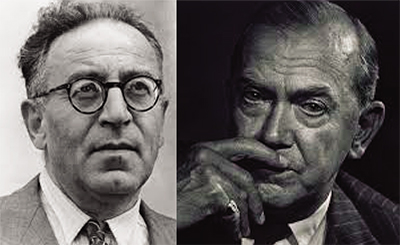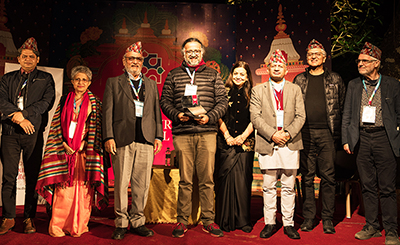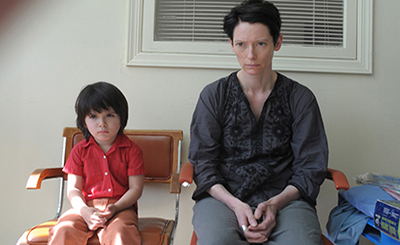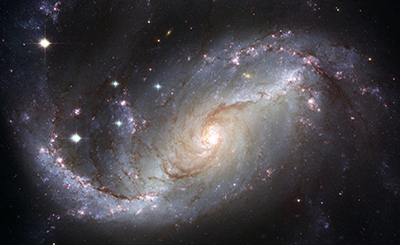
Years After the War
It has been many years. Yes, so much so
That sometimes over evening coffee, you
And I, in meditative silence sunk,
Reaching for the biscuits, suddenly
Catch each other’s eye and look away
And pat our hair with sudden awkwardness.
Retired veterans, both of us retell
Our favourite anecdotes, though now beyond
All reference to the truth of occurrence
And imbued only with the truth of thought.
Do you remember that prismatic night
I hurled a plate at you and cut your lip?
You bled a little, strangely not a lot,
And bear a scar there still. You know, sometimes
On winter evenings when your book has slipped
From hands too tired or too unattached,
The lamp light burns the brighter on your face
Defenceless in the yellow of its space
And I can see the subtle dark brown ridge.
Well, for that matter, there was once that day
You came home with an unfamiliar song
And smiled secretly when I asked you why
The lyrics made no sense. It took us months
To form a nervous peace, and I think we
Still bear some shrapnel from that hostile round.
Strange how we were the ones who fought and lost
And won and fought again with reckless hearts,
Believing with such passion in our war,
Yet in the end were taken by a foe
We had not learnt to recognise or dread
When young and drunk on heady battle-songs.
Too many have the years been, and too long.
How Within a Sonnet?
How within a sonnet? How to bind
A restlessness that took a lifetime and
The essence of quiescence to define?
Look at the hourglass and ask my mind
To settle on the flow of falling sand
And fix stillness in the moving line?
And then, word by word, I must achieve
The crystalline within the liquid spill:
A poem in a dying, noisy world
That measures how much thickly flowing grief
It took before the hungry hollow filled
And the germinating plant unfurled.
It can’t be done, my wanderlust protests
And brief summations violently contests.
Lakeside Meeting at Pushkar
Has it really been seventeen years
Since you and I shared hash upon this shore?
The evening feels the same, and same the smoke
But you have now a scar upon your face
Which is unknown to me, my once-loved friend.
Forget all that, and let us watch the sun
Which wends its silent way into the lake
While Chandar, older, with his expert touch
Tosses mushrooms as only he can,
Amazing what survives the test of time.
My friend, and can I still say it? my love,
The moment will excuse a maudlin tear,
And even grant me middle-agedness
And let me spare a sigh for summer nights.
That done, I think I can hold out my hand
And share your cigarette with no ragged edge.
This night I want to tell you all, and though
These are but waves against a still sea-shore,
All humankind is like my aging face,
And though the graveyard is under our feet
We seek an absolution that will last.
Was there a moment that I could define?
Was there an excuse I could make to you?
Let’s toss this piece of bread into the lake
And watch a turtle crawl up to the edge.
I’m sure that there was something more to say
But pass that cigarette, if I say a word
It lessens what the days have taught to me
And that is, love, we all have lived a life
And, being human, may forgiveness seek.
Maitreyi
Maitreyi was there by my side the night
My father banished me. Yes, I recall
How the rage took him, as if to war,
As if the smell of blood was pounding in
His head. I looked at him and knew just how
He felt, futile, that I, his only son,
Questioned his dominion over me,
But my life was mine and his was his
And mine contained Maitreyi, his did not.
When I took off my jewelled sandals, she
Took hers off too, off those blue-veined feet,
My mother’s eyes were tired suddenly
Her shrivelled monkey hands with ruby rings
Shook a little, thinking of, perhaps,
Flowers worked in gold on silken clothes
Swaddling new-born princes, fittingly,
Fitting occupation for a queen
Proving insufficient at the crux
Against the steel and slash of kingly rage.
It was no bad life, after all, for us,
There was a streak of stubbornness in me
Which kept my mind from craving luxury
And blue and green were colours I could read:
Deer roasting by the lake at night
And Maitreyi soft and warm on grass.
My rustic pupils paid their copper coin
To learn swordplay from dextrous well-built arms.
Will you sit down? I can no longer walk
For hours in grassy pathways even when
The mango is in flower. Yes, that will do,
I thank you. You’re the soul of courtesy.
She liked to sing. I let her. And her hair
Wove itself through bush and grass and tree.
I loved that hair, that curious little face.
Did it matter what the ditties meant?
She lived, I loved, and was that not enough?
For I allowed Maitreyi all that she
Could want from forests or generosity,
For her sake I had left a life behind,
Reduced my influence to but one form,
Should she not have been grateful, then, to me,
At the very least? (Forgive me, friend,
The moonlight gets into an old man’s eyes
And creates this image of a tear.)
Time passed, a year or two, Maitreyi grew
Wan and pale for no reason at all
That I could see, and then there came into
Her eyes a look of weariness which I
Could not tolerate: I told her so,
I told her. Yet her ways remained unchanged,
Days would pass without her sweeping out
Our little home, or finding those blue flowers
That she once loved to strew around inside
Our room. Sometimes she even spent whole days
Just sitting on the grass with hair uncombed,
For all the world as if she did not care
That I would soon be back to look at her.
And then she took to saying that we should
Leave the forest and seek out a town.
My palace I had left behind for her
And she could not live in a glade with me?
No, she said, it was no discomfort
To her to share my hermit life with me
She valued all that I had done for her
Only I never listened to her songs
And she must seek a pupil or a friend.
Her songs? What did the woman mean?
A friend! So I was not enough a man
To keep dominion over my own wife?
This Maitreyi whom I loved so well,
Her hair, her eyes, her curious little face,
She would now go and seek a life in town?
(No, don’t call the guard, it’s just a cough,
A little water then, if you insist.)
Now tell me, had she left me with a choice,
Was there an option for my self-respect?
I let the rage take me as if to war
And felt the blood pound in my royal head.
You know the rest. You saw how I, one day,
Returned and claimed my father’s love again
And his admiration when I won
Our southern province back from that upstart
Who thought he could…But that’s another tale.
She Speaks Her Love
I
At evenfall the yellow lamp is lit,
And wine is placed upon the wooden tray,
We sit, at peace with ourselves and the moon,
All actions folded up like daytime clothes
And, love, your face is gentle on my mind.
II
But when the moonlight slants into the room
And sculpts you with the hands that do not err,
How like the Artist’s vision is your sleep,
And then the clean-cut angles of your face
Can slash with unpremeditated grace.
III
Yet these are not the reasons why I love.
No, it is when the clear blue slanting ray
Plays upon the surface of your mind
And strange reflections shine out of your eyes
That, love, your face is flawless to my sight.
News From Haryana
Her chunni like a lissom river flows
Winding wayward blueness through his fields
Sparkling past the edges of his forests
And mesmerising him with water songs
He stands arrested, sickle held aloft
Yellow flowers blooming in his heart
He holds her close like life but can do nothing
But share her colours when the plunging blade
Enters silverly, emerges red
For her brothers are such men of men
Strong and pulsing with the righteous wrath
That rises up against all wayward blue
What if the crop was poor this year, what if
The rains were late, or sister’s husband died
The holy song seduces with a sense
Of oneness, and the hot comfort of hate
For all men need some structure in their lives
Although, perhaps, the youngest had no clue
Why he joined the lusty, loud-voiced throng
But that the game of hell and paradise
And orange banners seemed like such a lark
He knows the road which leads to his own home
With the shady peepal at the turn
He must have walked down it a million times
With bread, or friend, or brand new cricket bat
Yet the smell of fear is something new
And dogs his steps and makes him turn his head
As he walks his daughter home from school
But what could happen here, on his own road
Yet the men who yesterday were but
People, speak a strange satanic tongue
Noon Over the Yamuna
The town bakes, submissive along the banks of the green snake river,
Squat white houses hunched up against the glare like old men,
Seeking perhaps, like a people, just to survive this noon,
This unforgiving noon, and call forth the miracle of darkness again.
Strange that such emphatic heat should accept alternatives
To itself, and not be immutable forever,
I’d said once, but your laugh had been opaque and alien
As you’d watched the sky darken above the green snake river.
You were different, even then, clear and unperturbed,
Your mind lambent on memories as yet unmade
Your eyes admitting possibilities, other hands, other loves,
The transient death of day, the birth of night, undismayed,
Even as your fingers covered mine on the railing,
That day years ago. Shaken, I had sought reassurance
From the sun-filled river, green and glinting, silent,
Flowing on, it seemed, in simple permanence.
That, of course, was also relative, all things being
The chance result of a temporary equilibrium, I realized later,
You and I, or the sun and earth, momentarily
Dictating this way or that a flow of green water.
Why then should the Yamuna be so unreasonably beautiful,
Shimmering green and golden in the white-hot noon-haze,
Its loveliness, doomed and defiant, encapsulated in my mortal mind,
Rescued again for a moment from the passage of days?
Tonight I’ll Make Myself a Handkerchief
I think I’ll make myself a handkerchief.
Here in green a sleepy childhood pond,
And nestled close beneath a curling frond,
secret sludge and hidden place for shells.
Worked in red and silver, here a tear
Where a shaft of moonlight ripped the cloth
Many years ago. The jagged edge,
Coagulated, still looks for a way
To keep the waters close. So let’s pretend
A dam controlled the arteries of the fray.
Here a pristine swathe, the linen fresh,
the napkin newness antiseptic, cold,
at least to look at. Though, at best, you know
it’s unreliable, if truth be told.
But here around the edge, now how enclose
the rebel sea, the restless waves unstemmed
that froth and battle at the brittle shore?
I see the handkerchief cannot be hemmed.
While the Snake Meanders in My Mind
While the snake meanders in my mind
I find it difficult to love, despite
The simple mirrors of your easy heart
Or perhaps because. The damnedest part
Is how you show me, wrapped, to my own sight,
In embroidered velvet, well-designed.
Perhaps it’s true, the way you see me, lit
And lovely in a clear quiescence,
A queen. The thing is, I don’t really care
For the face of beauty as you share
It. What would you? In my defence
I tell you I’m nobody’s conduit
To harmony. I’d even prefer loathing
In the interest of shedding clothing.
Comments
*Comments will be moderated











